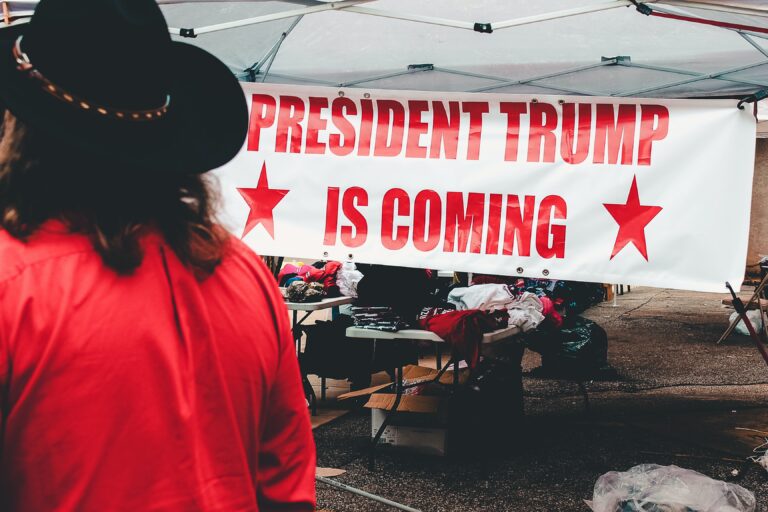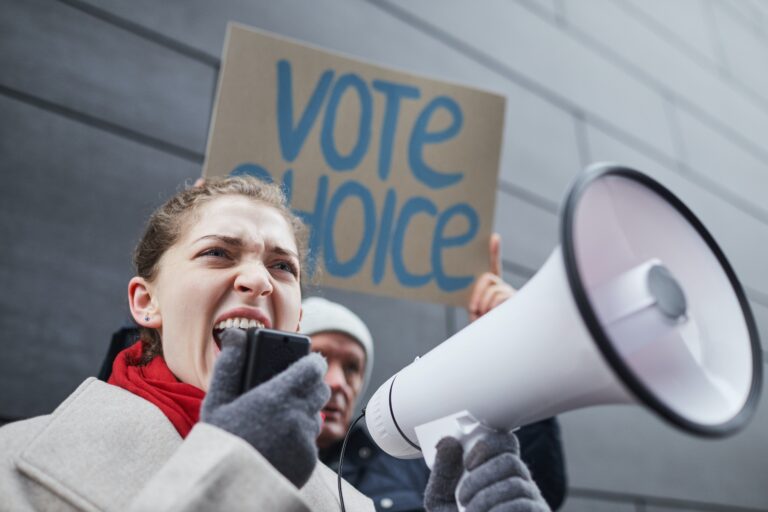2024 presidential elections in the USA: Your Comprehensive Guide
Welcome to your one-stop source for all things related to the U.S. Presidential Election of 2024. The 2024 presidential elections are pivotal for the direction of the country, and as engaged citizens, it’s crucial to participate. We strive for clean elections in the USA by providing accurate and unbiased information.

About the 2024 U.S. Elections
The United States holds its presidential elections every four years, and the 2024 presidential elections are set to be a significant moment in American history. This election could potentially redefine policy landscapes for the environment, the economy, civil rights, and more.
EssayPro is your academic ally in ensuring top-notch grades. Our platform is designed to provide you with expert assistance in various academic tasks, from essays to research papers and dissertations. We prioritize your success, and EssayPro is here to help you excel and EssayPro keep your A+ grade within reach.
Candidates and Their Pre-Election Programs for the 2024 Elections
Democrats
Joe Biden
Joe Biden, as of 2021, is the 46th President of the United States. Prior to his presidency, he served as Vice President under Barack Obama from 2009 to 2017. Biden has had a long and distinguished career in politics, including multiple terms as a U.S. Senator from Delaware. His policy positions are generally center-left, focusing on healthcare reform, climate change, and social justice issues. He is known for his emphasis on unity and bipartisanship, although critics argue that his administration has faced challenges in effectively handling issues like the COVID-19 pandemic, immigration, and the Afghanistan withdrawal.
Marianne Williamson
Marianne Williamson is an author, spiritual leader, and activist who ran as a Democratic candidate in the 2020 presidential primaries. She is known for her New Age and spiritual ideas, focusing on themes like love, peace, and emotional healing as a path to solving political and social issues. Although she did not go far in the Democratic primaries, her candidacy brought attention to her unique approach to politics, which heavily incorporates spiritual and ethical themes. While Williamson is not a mainstream political figure, she has a substantial following and has been politically active in various advocacy issues.
Kennedy
The Kennedy family is a prominent American political family, best known for producing figures like President John F. Kennedy, Senator Robert Kennedy, and Senator Edward "Ted" Kennedy. Several younger Kennedys have entered into politics as well, such as Joseph Kennedy III, who served as a Congressman from Massachusetts. The family is known for its Democratic affiliation and its focus on social justice, healthcare reform, and human rights. Any Kennedy running for president would likely attract attention due to the family legacy but would also face scrutiny and expectations related to that legacy. As of 2021, there is no Kennedy currently running for president, although speculation often surrounds various members of the family.
Republicans
Donald Trump
Donald Trump, the 45th President of the United States, is a businessman and television personality. Trump's tenure from 2017 to 2021 was marked by a highly polarized political climate. While his administration boasted economic growth pre-pandemic, lowered taxes, and the appointment of three Supreme Court justices, it was also marked by controversies, including impeachment trials, divisive rhetoric, and questions about his handling of the COVID-19 pandemic.
Nikki Haley
Nikki Haley is a Republican politician who served as the U.S. Ambassador to the United Nations from 2017 to 2018. Prior to that, she was the Governor of South Carolina. Haley is known for her moderate stance on some issues, including immigration and foreign policy. She is often cited as a potential candidate who might appeal to both conservative and moderate voters.
Vivek Ramaswamy
Vivek Ramaswamy is a biotech entrepreneur and author who has gained prominence for his critiques of "woke capitalism" and identity politics. While not a career politician, Ramaswamy's thought leadership in conservative circles may be a stepping stone to political involvement, much like other outsiders who have entered the political arena.
Perry Johnson
As of 2021, Perry Johnson does not seem to be a widely-recognized political figure in the U.S., so it is difficult to provide a profile of him.
Larry Elder
Larry Elder is a conservative radio talk show host and attorney. He gained political prominence when he ran in the 2021 California gubernatorial recall election. Elder is known for his strong conservative stances, including on issues like limited government, individual liberty, and fiscal responsibility.
Asa Hutchinson
Asa Hutchinson is a Republican politician and the Governor of Arkansas as of 2021. He has a long career in public service, including roles in the U.S. House of Representatives and as an administrator of the Drug Enforcement Administration. He is considered a mainstream Republican with a focus on fiscal conservatism and criminal justice.
Tim Scott
Tim Scott is a U.S. Senator from South Carolina, known for his focus on economic issues, particularly opportunity zones aimed at revitalizing low-income communities. He gained national prominence by delivering the Republican response to President Joe Biden's first address to a joint session of Congress in 2021.
Ron DeSantis
Ron DeSantis is the Governor of Florida as of 2021. A vocal supporter of Donald Trump, DeSantis gained nationwide attention for his handling of the COVID-19 pandemic, advocating for personal freedoms over mandates. He has become a favorite among the conservative base.
Chris Christie
Chris Christie is a Republican politician who served as the Governor of New Jersey from 2010 to 2018. Known for his brash and confrontational style, Christie initially gained positive reviews for his handling of Hurricane Sandy in 2012. However, his political stock fell due to the "Bridgegate" scandal and a failed 2016 presidential run.
Mike Pence
Mike Pence served as the 48th Vice President of the United States under President Donald Trump. Prior to that, he was the Governor of Indiana. Known for his conservative views, particularly on social issues, Pence has been considered a steady and calming presence in contrast to Trump's more volatile personality.
Doug Burgum
Doug Burgum is the Governor of North Dakota as of 2021. A businessman turned politician, Burgum is a Republican known for his focus on modernizing government and economic development.
Will Hurd
Will Hurd is a former U.S. Congressman from Texas who decided not to seek reelection in 2020. Known for his background in cybersecurity, Hurd is a moderate Republican who has criticized both sides of the aisle and called for bipartisanship.
The 2024 clean elections usa Process
Primaries and Caucuses
States begin the 2024 elections process through primaries and caucuses, usually early in the election year. This phase allows party members to cast votes for their preferred candidates. It’s a critical stage for candidates to prove their viability and attract delegates who will later support them at their respective party conventions. Different states have varying rules; some hold open primaries where anyone can vote, while others limit voting to registered party members. You can write an essay on this topic or use Top essay writing services.
Party Conventions
Following the primaries and caucuses, each major party holds a national convention in the summer leading up to the general election. Here, delegates from across the country officially nominate their chosen candidates. These events are more than mere formalities; they serve as a platform for each party to unveil its official policy positions and rally its base.
One of the most common pleas we hear from students is, “Can you do my math class for me?” Understanding that math can be a challenging subject for many, essay services have expanded their expertise to include specialized mathematicians. This allows students who struggle with formulas and calculations to seek help and improve their grades.
General Election
The general election usually takes place on the first Tuesday in November. This is the day when the majority of Americans cast their votes. Though early voting and mail-in ballots have increasingly become popular methods of voting, Election Day remains a focal point of the democratic process.
Electoral College
After the general 2024 elections, representatives from each state cast their electoral votes based on their state’s popular vote results. There are 538 electoral votes, and a candidate needs at least 270 to win the Presidency. The Electoral College adds another layer of complexity to the election, as candidates must strategize to win individual states rather than merely aiming for the popular vote.
Inauguration
On January 20th following the election year, the elected President takes the oath of office. This ceremony marks the official start of the new presidential term. In addition to the President, the Vice President also takes an oath and begins their term on the same day.
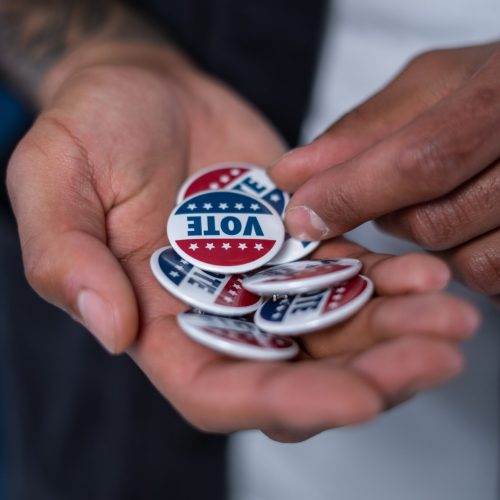
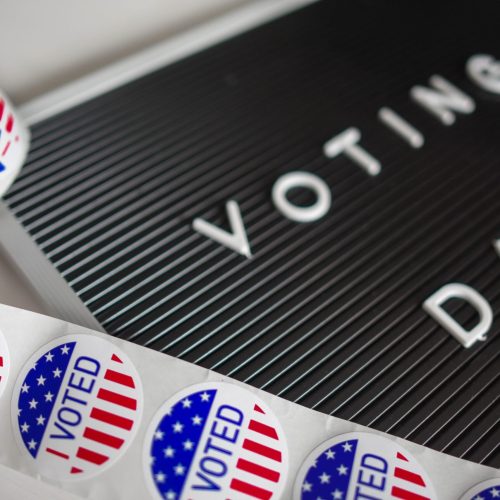
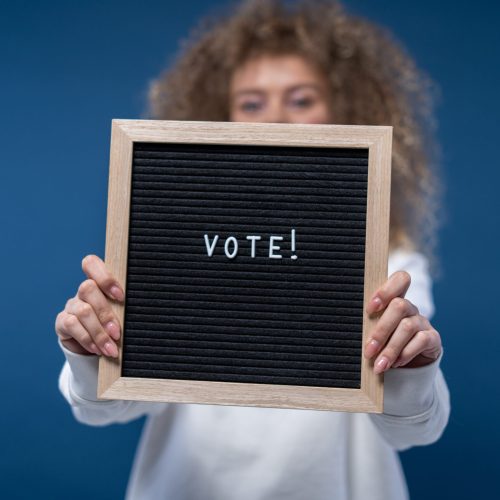
Election Problems and Concerns in 2024
As we advocate for clean elections usa, several concerns need to be addressed to ensure a fair and transparent electoral process:
Campaign Finance
The role of money in politics is increasingly worrying. “Dark money,” or political spending by non-profit organizations that do not disclose their donors, can significantly influence elections. Super PACs also raise ethical concerns as they can amass unlimited funds from corporations and individuals.
Election Security
With the growing threat of cyber-attacks and misinformation campaigns, safeguarding the integrity of the electoral process is critical. This includes securing voting machines, ensuring the reliability of mail-in ballots, and combating false information that could undermine public trust in the election outcome.
Frequently Asked Questions
Registering to vote can vary by state, but the general process is usually quite similar across the United States. You can often register online, by mail, or in-person at designated locations such as the Department of Motor Vehicles or local election offices. Here are general steps:
Check Eligibility: Make sure you meet the criteria to vote, which typically includes being a U.S. citizen, being at least 18 years old by Election Day, and meeting state residency requirements.
Choose a Method: Decide whether you’d like to register online, by mail, or in-person.
Fill Out Form: Complete the voter registration form accurately.
Submit: Send in your form or submit it online before the registration deadline for your state.
Confirmation: You should receive a confirmation of your registration, usually by mail, which will also inform you of your polling location.
As a registered voter, you have the right to:
Vote Freely: You have the right to cast your vote without coercion or intimidation.
Accessibility: If you have a disability, you have the right to an accessible polling place and assistance in voting if needed.
Language Assistance: Federal law requires some jurisdictions to provide voting materials and assistance in languages other than English, depending on the community’s needs.
Absentee Voting: If you’re unable to vote in person, most states offer absentee ballots. Rules for receiving and submitting absentee ballots vary by state.
Review and Correct: You have the right to review your ballot and correct any mistakes before submitting it.
Seek Assistance: If you have any issues or concerns on Election Day, you have the right to ask poll workers for help.
Contributing to clean elections is a civic duty that goes beyond merely casting your vote. Here are some ways you can contribute:
Stay Informed: Keep yourself updated about the candidates, their policies, and any potential election issues.
Check Your Registration: Verify that your voter registration is correct and up-to-date well before Election Day.
Encourage Registration: Encourage eligible voters in your community to register.
Volunteer: Many organizations work to ensure fair and transparent elections. Consider volunteering as a poll worker or observer.
Report Issues: If you see or hear of any issues such as voter suppression tactics, report them to authorities or watchdog organizations.
Educate Others: Use your platform, whether it’s social media or community involvement, to educate others about the importance of voting and how to navigate the electoral process.
Support Transparency Initiatives: Contribute to or volunteer with organizations that are striving for election transparency and fairness.

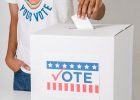



Vote for your candidate!
Be responsible
